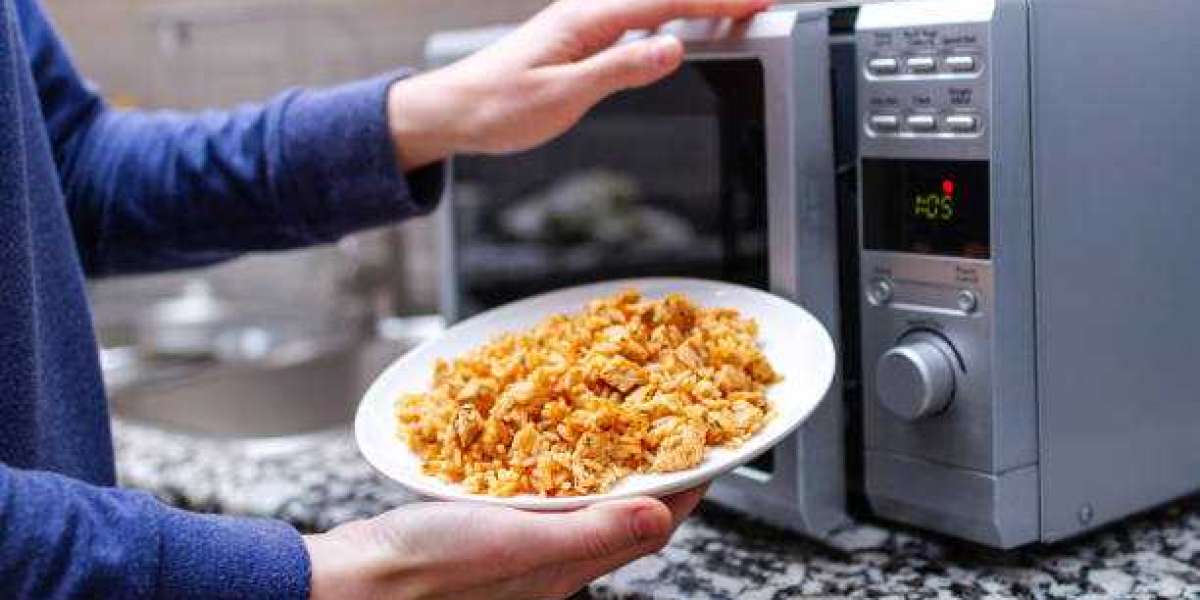Does Microwaving Kill Nutrients? The Truth Behind the Myth
Does microwaving kill nutrients? It’s a question many people ask when they’re reheating leftovers or steaming veggies in the microwave. The simple answer is no, it doesn’t destroy more nutrients than other common cooking methods. In fact, microwaving is one of the best ways to preserve nutrients in food.
In this article, we’ll explore what happens to nutrients during microwaving, how microwaving works, and why it's actually a healthy choice. Let’s clear up the confusion once and for all.
What Happens to Nutrients When We Cook?
Before we dive into microwaves specifically, it helps to understand how cooking in general affects food.
Food contains a variety of nutrients:
Vitamins (like C, B6, and folate)
Minerals (like calcium and iron)
Proteins, fats, and carbohydrates
Antioxidants (like lycopene and beta-carotene)
Some nutrients are sensitive to heat, water, air, and light. For example:
Vitamin C is easily destroyed by heat.
B vitamins are water-soluble and can leak out into cooking water.
Minerals are generally more stable and remain in the food.
When you cook food, especially at high heat or in water for a long time, it can lose some of its nutrients—but this happens no matter what method you use, not just in the microwave.
How Does Microwaving Work?
Microwaves cook food using electromagnetic waves, which cause water molecules in the food to vibrate. This creates heat, which cooks the food quickly and evenly.
Unlike frying or baking, microwaving:
Uses lower temperatures
Requires less cooking time
Often uses little or no water
These are all important factors because the longer and hotter the cooking, the more likely it is that heat-sensitive nutrients will break down.
Does Microwaving Kill Nutrients More Than Other Methods?
Let’s compare microwaving to some other common cooking techniques.
1. Microwaving vs. Boiling
Boiling causes a lot of nutrient loss, especially for vitamin C and B vitamins, which dissolve in water and get thrown away when you drain the pot.
Microwaving, on the other hand, uses very little water and cooks food quickly. This helps preserve those delicate vitamins.
✅ Microwaving wins
2. Microwaving vs. Steaming
Steaming is a great method that keeps nutrients intact because the food isn’t soaking in water. You can actually steam food in a microwave using a bowl with a little water and a lid.
So in this case, microwave steaming is just as good—if not better—because of the faster cooking time.
✅ Tie
3. Microwaving vs. Frying
Frying uses high heat and often unhealthy oils. This can break down heat-sensitive vitamins and add extra fat and calories.
Microwaving avoids all that. You don't need oil, and the cooking time is shorter.
✅ Microwaving wins
4. Microwaving vs. Roasting or Grilling
These methods use dry heat at high temperatures. They can make food tasty but also cause some nutrient loss. Grilling, especially, can produce harmful compounds if food gets charred.
Microwaving cooks at lower temperatures and avoids those dangers.
✅ Microwaving wins again
What Nutrients Are Affected?
Let’s look at how specific nutrients react to microwaving.
Vitamin C
This is one of the most delicate vitamins. It’s sensitive to heat and water. Microwaving helps preserve vitamin C better than boiling because it uses less heat and no excess water.
B Vitamins
These water-soluble vitamins (like B6, B12, and folate) are easily lost in boiling water. Because microwaving doesn’t soak food in water, more of these nutrients stay in the food.
Protein
Microwaving doesn’t damage proteins. As long as you don’t overcook the food, proteins remain usable and digestible.
Antioxidants
Some foods, like tomatoes and mushrooms, actually show increased antioxidant activity after microwaving. That’s because heat can release some antioxidants, making them easier for the body to absorb.
Is Microwave Radiation Harmful?
Another concern people have is the word “radiation.” But don’t worry—microwave radiation is non-ionizing, which means it doesn’t damage cells or make food radioactive.
It’s completely safe. Microwave ovens are designed to keep the energy inside. As long as your microwave is in good condition and you use it properly, there’s no risk.
✅ Microwaving is not dangerous
Tips to Maximize Nutrition When Microwaving
To get the most out of your microwave and keep your food nutritious, follow these simple tips:
Use a microwave-safe cover
This keeps steam in and helps cook food evenly.Add only a little water
Steaming with minimal water helps preserve vitamins.Avoid overcooking
Cooking food too long—even in the microwave—can break down nutrients.Cut food evenly
This helps ensure everything cooks at the same rate.Use the right container
Avoid plastic containers not labeled “microwave-safe,” as they can leach chemicals into your food.
What Do Experts Say?
Still not convinced? Here’s what the science says:
A 2009 study in the Journal of Food Science found that microwaving vegetables preserved antioxidants better than boiling or frying.
The Harvard Medical School notes that microwaving food actually helps retain more nutrients than many traditional cooking methods.
The World Health Organization (WHO) has confirmed that microwaving food is safe and does not reduce its nutritional value in any unique or harmful way.
Myth vs. Fact
| Myth | Fact |
|---|---|
| Microwaves destroy nutrients | Microwaving preserves nutrients better than boiling or frying |
| Microwaving makes food unhealthy | It actually helps retain vitamins and antioxidants |
| Microwaved food is radioactive | Microwave energy is non-ionizing and completely safe |
Final Thoughts
So, does microwaving kill nutrients? Not really. In fact, it can help you hold onto more nutrients compared to other cooking methods like boiling or frying. Because microwaving is quick and uses less water, it protects heat-sensitive vitamins and keeps your food healthier.
Microwaves are safe, convenient, and surprisingly good for preserving nutrition—just use the right container and avoid overcooking.
Next time you heat up leftovers or steam some veggies, feel confident knowing you're making a smart, healthy choice.
For more insights on nutrition, mindful eating, and overall well-being, visit venzec.icu and explore resources designed to help you live a healthier life.







